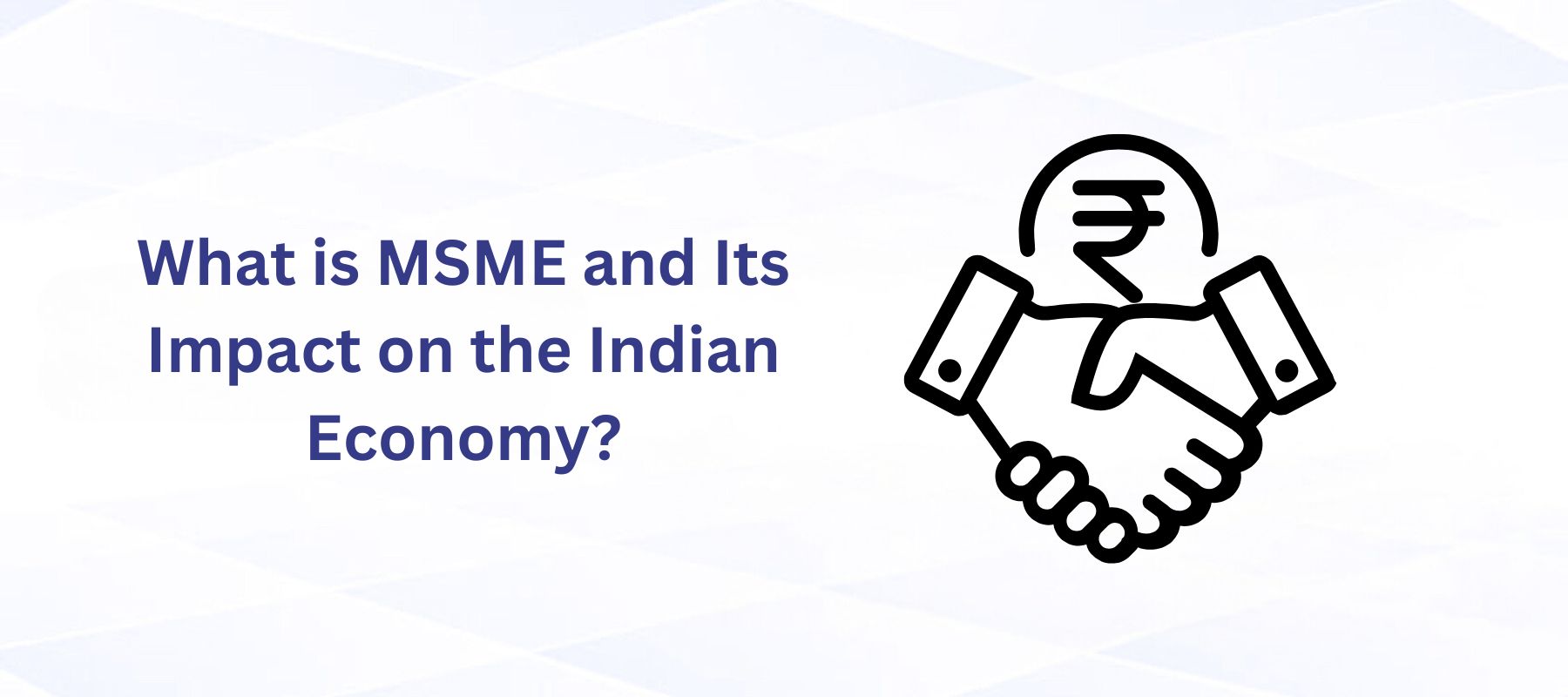Special Offers




Special Offers




11-Dec-2024 | MSME

Micro, Small, and Medium Enterprises (MSMEs) are the backbone of the Indian economy, playing a pivotal role in employment generation, innovation, and economic growth. Recognized as a vital contributor to India’s GDP, MSMEs drive industrialization in rural and backward areas, reducing regional imbalances and fostering equitable economic development.
MSME stands for Micro, Small, and Medium Enterprises. These entities engage in manufacturing, production, and service delivery, contributing significantly to the Indian economy. The concept of MSMEs was introduced by the Indian government through the Micro, Small & Medium Enterprises Development (MSMED) Act, 2006.
Foster self-reliance by promoting entrepreneurship.
Drive employment, particularly in rural and semi-urban areas.
Boost the economy by contributing to exports and innovation.
The classification of MSMEs is based on investment and turnover, as revised under the Aatma Nirbhar Bharat Abhiyan initiative in 2020.
|
Size of Enterprise |
Investment (INR) |
Annual Turnover (INR) |
|
Micro |
Less than 1 crore |
Less than 5 crore |
|
Small |
Less than 10 crore |
Up to 50 crore |
|
Medium |
Less than 20 crore |
Up to 100 crore |
The MSME Development (MSMED) Act, 2006 established the foundation for the regulation and promotion of MSMEs in India. The government has since introduced several initiatives to enhance the sector, such as the National Board for MSMEs and financial support schemes.
Low Capital Requirement: MSMEs often operate with minimal initial investment.
Employment Generation: They provide jobs for over 60 million people.
Entrepreneurship Promotion: By enabling local industries to flourish, MSMEs encourage self-employment.
MSMEs contribute to 8% of India’s GDP, with a vast network of over 6.3 crore enterprises.
These enterprises account for 40% of India’s exports, showcasing their critical role in global trade.
By promoting industries in less-developed regions, MSMEs help bridge the urban-rural economic divide.
Credit Linked Capital Subsidy Scheme (CLCSS)
Prime Minister’s Employment Generation Programme (PMEGP)
Training initiatives enhance the skillsets of employees and entrepreneurs.
Support for accessing global markets through the Export Development Assistance Scheme.
Despite their importance, MSMEs face significant challenges, including:
Financial Constraints: Limited access to affordable credit.
Technological Lag: Inadequate modernization in production processes.
Regulatory Issues: Complex compliance requirements.
The adoption of digital platforms and e-commerce has revolutionized how MSMEs operate. Initiatives like the Digital MSME Scheme aim to enhance competitiveness through technology.
While MSMEs contribute to economic growth, they also face scrutiny for their environmental footprint. Green initiatives, such as renewable energy adoption, are being encouraged to promote sustainability.
MSMEs have immense potential for innovation and global integration. Emerging trends like Industry 4.0, AI-driven production, and eco-friendly practices promise a bright future for the sector.
During the COVID-19 pandemic, MSMEs played a crucial role by manufacturing essential supplies and sustaining livelihoods. Their adaptability underscores their importance in building economic resilience.
What is the eligibility for an MSME classification?
Businesses must meet investment and turnover criteria as defined under the MSMED Act.
What government benefits do MSMEs receive?
Subsidies, financial assistance, tax exemptions, and skill development programs.
How do MSMEs register in India?
MSMEs can register through the Udyam Registration Portal.